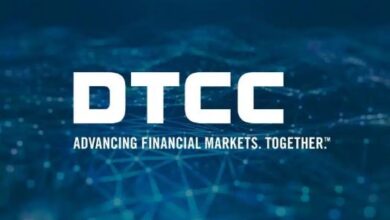FeaturedGlobal NewsGovernment
Deloitte Considers the benefits of crypto for businesses

In a recently published piece on Deloitte website, the leading consultancy and auditing firm confirmed that more than 2,300 US businesses are now accepting bitcoin, and this does not include the usage of bitcoin ATMs. They asses that while the use of crypto in businesses presents a host of opportunities and challenges as with any frontier, the paper they have published will look into the benefits.
According to Deloitte, most companies are using crypto to provide access to new demographic groups. Users often represent a more cutting-edge clientele that values transparency in their transactions. One recent study found that up to 40% of customers who pay with crypto are new customers of the company, and their purchase amounts are twice those of credit card users. Using crypto also spurs internal awareness within a company, and help position its better in this emerging space. In addition crypto provides access to new capital and liquidity pools as traditional investment get tokenized.
It also furnishes certain options that are simply not available with fiat currency. For example, programmable money can enable real-time and accurate revenue-sharing while enhancing transparency to facilitate back-office reconciliation.
Deloitte also mentions that crypto provides a new avanue for for enhancing a host of more traditional Treasury activities, such as: Enabling simple, real-time, and secure money transfers
Helping strengthen control over the capital of the enterprise, and managing the risks and opportunities of engaging in digital investments. Crypto may serve as an effective alternative or balancing asset to cash, which may depreciate over time due to inflation. Crypto is an investable asset, and some, such as bitcoin, have performed exceedingly well over the past five years. There are, of course, clear volatility risks that need to be thoughtfully considered.
In terms of crypto payments such as Bitcoin, enabling it without bringing it onto the company’s balance sheet may be the easiest and fastest entry point into the use of digital assets. It may require the fewest adjustments across the spectrum of corporate functions and may serve immediate goals, such as reaching a new clientele and growing the volume of each sales transaction. Enterprises adopting this limited use of crypto typically rely on third-party vendors.
The third-party vendor, which will charge a fee for this service, handles the bulk of the technical questions and manages a number of risk, compliance, and controls issues on behalf of the company. That does not mean, however, that the company is necessarily absolved from all responsibility for risk, compliance, and internal controls issues. Companies still need to pay careful attention to issues such as anti-money laundering and know your customer (AML and KYC) requirements. And, of course, they also need to abide by any restrictions set by the Office of Foreign Assets Control (OFAC), the agency that administers and enforces economic and trade sanctions set by the US government.





